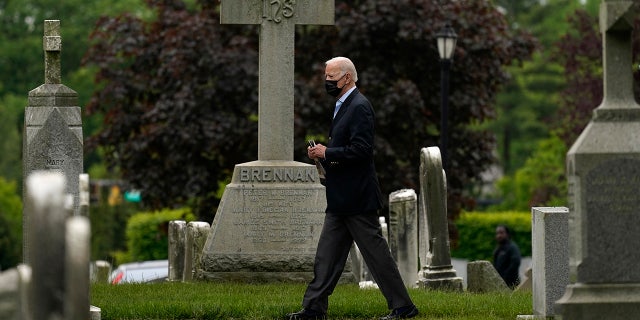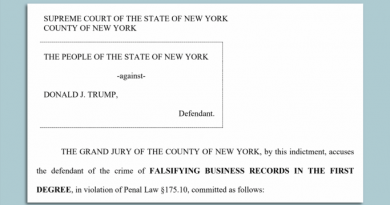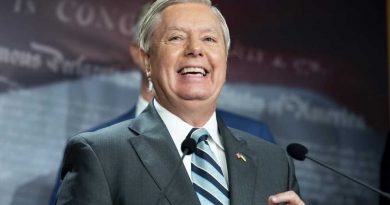Biden to continue to attend church despite possible rebuke from Catholic bishops
Catholic bishops advance effort to deny Biden communion
Former Priest Jonathan Morris explains why the president and other politician’s views on abortion could affect standing in the Catholic church
White House press secretary Jen Psaki on Monday said President Biden will likely “continue to attend church” despite efforts by U.S. Catholic bishops to prevent him and other politicians who support abortion policies from receiving Communion at Mass.
The U.S. Conference of Catholic Bishops (USCCB) last week voted overwhelmingly to draft a formal document on the meaning of the Eucharist after a contentious debate on whether Biden and other politicians supportive of abortion policies are worthy of receiving Communion. The vote tally announced Friday was 168 bishops in favor, 55 opposed, and six bishops abstaining.
A section of the document is expected to include a specific admonition to Catholic politicians and other public figures who disobey church teachings on abortion and other core doctrinal issues.
When asked about the proposed document Monday, Psaki said President Biden “is a strong man of faith,” calling religion “personal” to him.
“He goes to church, as you know, nearly every weekend. He even went when we were on our overseas trip,” Psaki told reporters. “But it’s personal to him. He doesn’t see it through a political prism, and we’re not going to comment otherwise on the inner workings of the Catholic Church.”
President Joe Biden walks from St. Joseph on the Brandywine Catholic Church after attending mass, Sunday, May 16, 2021, in Wilmington, Delaware. (AP Photo/Carolyn Kaster)
Psaki added that the president’s faith “has helped guide him through some challenging moments in his life.”
“That’s how many Americans see their faith as well, not through a political prism,” she said. “So I would suspect he will continue to attend church, as he has for many, many years.”
The president, on Friday, was also asked about the vote, and seemingly cast doubt on whether the language would be formalized.
“That’s a private matter,” the president said, adding, “and I don’t think that’s going to happen.”
Biden, who attends Mass regularly, has said he personally opposes abortion but doesn’t think he should impose that position on Americans who feel otherwise. He’s taken several executive actions during his presidency that were hailed by abortion rights advocates.
Biden, early in the 2020 presidential election cycle, reversed his stance on the Hyde Amendment, which prohibits the use of federal funds to subsidize abortions except for cases of rape, incest, or when a woman’s life is endangered by a fetus. At the time, he said he “can no longer support an amendment that makes” a woman’s right to an abortion “dependent on someone’s ZIP code.”
“I make no apologies for my last position and I make no apologies for what I’m about to say,” Biden said in 2019, defending his change of heart. “I can’t justify leaving millions of women without access to the care they need and the ability to exercise their constitutionally protected right.”
Some bishops believe Biden forced their hand on making a decision and the church’s credibility was on the line if they didn’t move forward with a document reaffirming core Catholic values.
“It’s not the bishops who have brought us to this point — it’s some of our public officials,” said Archbishop Joseph Naumann of Kansas City, Kansas during Thursday’s debate. “This is a Catholic president doing the most aggressive things we’ve ever seen on life at its most innocent.”
Up next, at least two-thirds of the bishops would have to vote to adopt the new language at their next gathering slated for November. The decision on whether Biden should be allowed to receive Communion would still be left up to individual bishops, as is standard for all churchgoers, but a new document would inform those decisions.
Cardinal Wilton Gregory, the archbishop of Washington, has made clear that Biden is welcome to receive Communion at churches in the archdiocese. During Thursday’s debate, Gregory pressed against authoring a new Communion document at this time.
“The choice before us at this moment is either we pursue a path of strengthening unity among ourselves or settle for creating a document that will not bring unity but may very well further damage it,” Gregory said.
The secret vote tally was announced Friday afternoon, but the lengthy debate on the measure took place Thursday during a virtual session of the bishops’ national meeting.
Catholics believe that during Mass the bread and wine used for Communion become the body and blood of Jesus Christ. The sacrament of the Eucharist is so sacred to the Church that some bishops have expressed concerns about whether Biden is worthy for Communion given his pro-abortion policies that run counter to the Catholic Church’s pro-life beliefs.
Still, some bishops said the document itself wouldn’t be about one individual.
Asked directly on Thursday whether Biden should receive Communion, the chairman of the USCCB doctrine committee made clear it’s not up for the conference to decide but rather look at “Eucharistic consistency” more broadly.
“That’s a decision of his bishop,” Bishop Kevin Rhoades of Fort Wayne-South Bend, Indiana said at a press conference.
Fox News’ Marisa Schultz and The Associated Press contributed to this report.
Source: Read Full Article




